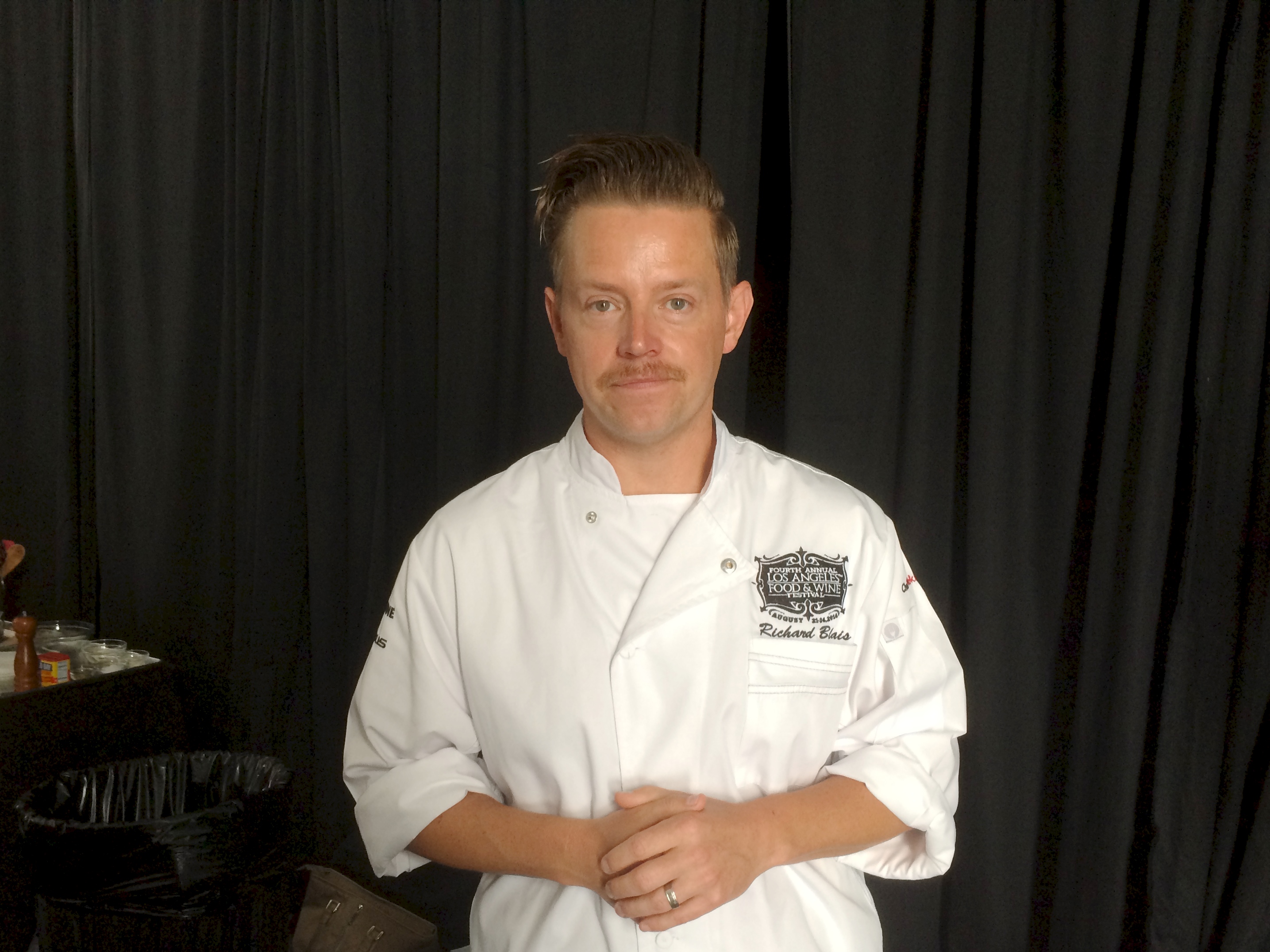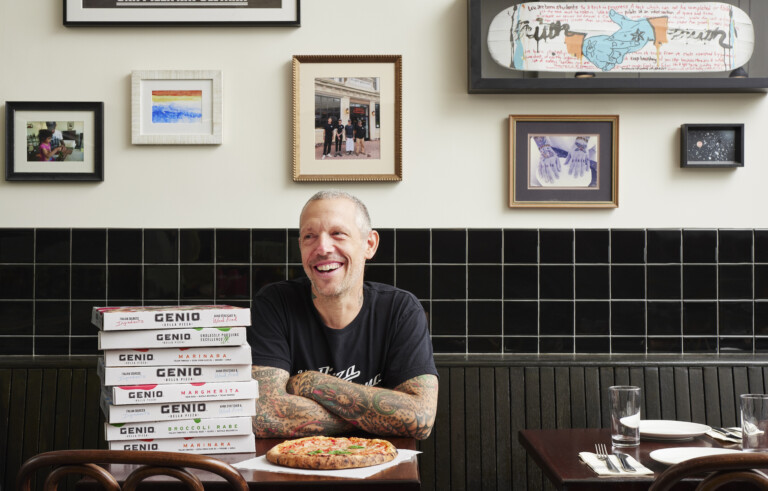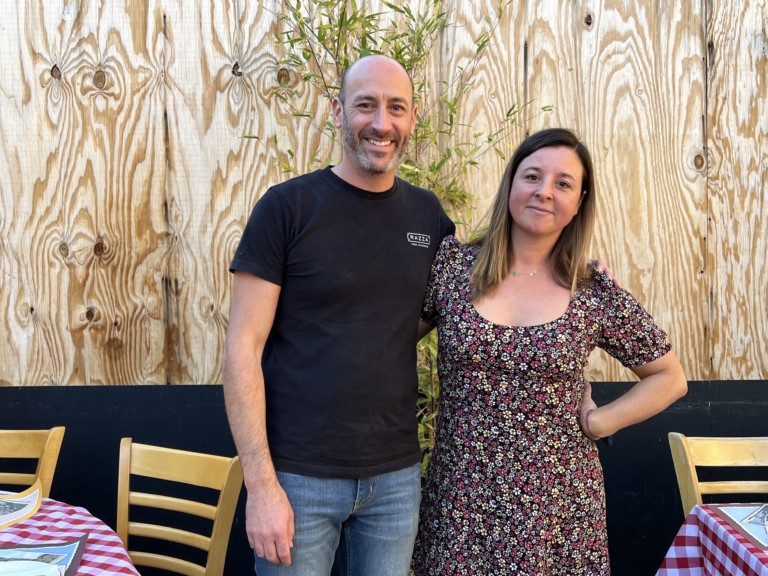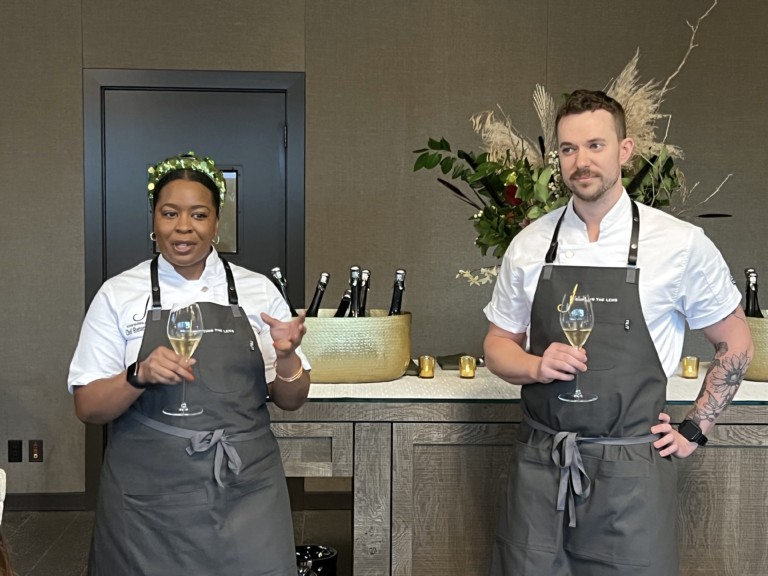INTERVIEW CONTINUED FROM PREVIOUS PAGE
JL: What was the most recent dish that you developed, and what was your inspiration?
RB: The most recent dish we put on the menu, that’s been popular, is just a roast chicken dish. It’s a simply un-brined roast chicken with potatoes that are cooked in seawater, so they’re nice and salty, and a green harissa sauce. Usually harissa’s red, but we use green chiles for it. Super simple. Again, who doesn’t love roast chicken, but the green harissa gives it a click of edge to make it something you don’t make at home. Besides the fact that we get great chicken and it’s professionals cooking it and all that. Those are the dishes that I love, something familiar that has one thing that’s turned pretty hard left. In that dish, it’s the green harissa.
JL: You said your favorite dish was chicken wings. What’s the key to a great chicken wing?
RB: I’m old school. It’s the combination of the vegetal, crispy celery versus the blue cheese dressing, and the nice spicy, traditional sauce for the wing. I’m a sucker for that. When it comes to, “What’s the best way to do it?” We’ve done so many different ways, but brining and frying works for me. I don’t have a problem with that… I’m also a sucker for lemon and pepper, so in my book [Try This At Home], I have chicken wings with lemon curd and black pepper, which illustrates what I’ve been talking about. Lemon pepper, every home cook is making that in some regard, but they’re not making that with lemon curds, which gives it that edge to make it a little chef-y.
JL: Who else in the restaurant industry do you look to for inspiration, guidance or advice?
RB: [looks to his left] Big Gay Ice Cream, these guys are here right now. They’re certainly friends and inspiring, because they’re doing their own thing. The little restaurants inspire me the most. All of my restaurants are sort of high-volume places. I’m a big fan of the Bay Area. I’m a big fan of San Francisco. I’m a fan of the chefs who say, “We’re going to close our restaurant on Sunday and Monday. We’re going to just do service from 6 to 10. Our menu’s these 10 items.” That’s a number of restaurants. Hard to say which one. Just, “This isn’t about money. It’s about doing what we love in this small box of a restaurant.”
JL: What will it take for you to consider your work in restaurants a success?
RB: Some people want awards. We were nominated for the book for a James Beard…It’s successful when people are showing up. Someone will say, “Hundreds of people show up to a Cheesecake Factory every night.” They’re successful, in some regard. For me, if people continue to show up to my restaurants, that’s success. It’s a metric that we unfortunately have to use every day. So sometimes we’re successful and sometimes we’re not.
JL: You clearly don’t want to be known as a molecular gastronomist. What would you like to be known for as a chef?
RB: Certainly, creative, I have no problem with. I like the word artist. I like the romance of it. Really though, a good cook. Sometimes we think of the word cook as a bad word. I want people to say, “He’s creative, but he’s a really good cook.”









Leave a Comment